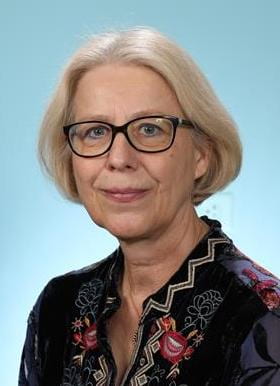This initiative is designed in support of developing and elevating scientific research ideas, new educational programs, and intradepartmental collaborations. By being part of SPARK community, you’re not just advancing your own work—you’re contributing to our collaborative efforts and advancing research within our department. We look forward to your participation and are excited to hear and support your innovative research.
The SPARK Initiative aims to:
- Support your innovative ideas and provide constructive feedback
- Advance innovative work from concept to implementation.
- Foster Research by encouraging researchers, across our department to work together
- Kickstart groundbreaking projects with seed funding and resources.
- Mentorship: Foster a mentorship environment where seasoned and junior faculty can share insights.
- Instructors and Assistant professors
- Mid-career faculty who are embarking on a change between a clinical and research focus, or desire to receive mentored guidance on a new research direction.
- PSTP and Post-Docs are eligible to apply under the following circumstances:
- You have senior or pre-faculty status
- The project is not related to your current work
- The project requires collaboration with faculty other than current mentors
- The project provides long-term benefits to the department
- Submit 1-2 page letter on intent that includes:
The background and rationale of why this is important.
The approach
How will the project advance beyond the year of funding.
Significance of the project to the department, medical school, or the field in general. - Provide the names of a minimum of 5 experts in the field of the project. They can be members of P & I, but you must also include people outside your division and the department. It can also include staff or other allied professionals who have knowledge of your project area. Identify one to serve as the project mentor. (Invitations will be done after project acceptance.)
- Submit your current CV or biosketch
Projects will be selected on
- The written letter of intent
- Novelty of the project
- Overall research, educational, or clinical impact as well as impact for applicant’s career.
- Lack of other funding sources
- Prepare a 30-minute presentation which includes the rationale/background, the approach, long term plans, significance and budget with rationale.
- Presentations are held bi-monthly the second Thursday of January, March, May, July, September, and November from 5:00 – 6:30 pm in EPNEC.
- Presentation will take place from 5:00 – 5:30 pm followed by 30 – 60 minutes of discussion and feedback from invited guests.
- Attendees are the invited guests, SPARK committee and any junior P & I faculty who choose to attend. An open invitation is sent to junior faculty by program manager.
- Your invited guests will be asked within 24 hours after presentation to provide the SPARK committee their recommendation whether the project should or should not be funded by our program. You will be notified of the decision soon thereafter.
- Logistics:
The program manager will assist with inviting requested guests, supplying them with needed materials (Letter of intent, CV or biosketch, and SPARK program summary) and communicating logistics of the event to all involved.
Beverages and refreshments will be available for attendees.
- The approved funds will be distributed to applicant as soon as logistically possible. Funds may not be used for salary support.
- Unused funds will expire after 1 year from distribution date.
- Applicant will choose and invite one of the expert guests to serve as a year-long mentor on the project and should consult with this mentor frequently.
- Project update reports should be provided to the SPARK committee.
At 6 months provide an informal written status report.
At 1 year provide a written 1-page progress report/summary.
At 2-3 years update the SPARK committee on any publications or additional funding that has resulted from the project.

Eynav Klechevsky, PhD
Associate Professor, Pathology & Immunology
- Phone: 314-747-6688
- Email: eklechevsky@nospam.wustl.edu
Division: Immunobiology
Office of Faculty Development Representative

Ulrike Lorenz, PhD
Professor, Pathology & Immunology
- Phone: 314-273-6143
- Email: ulrike@nospam.wustl.edu
Division: Immunobiology
SPARK Program Manager: Janet Braun